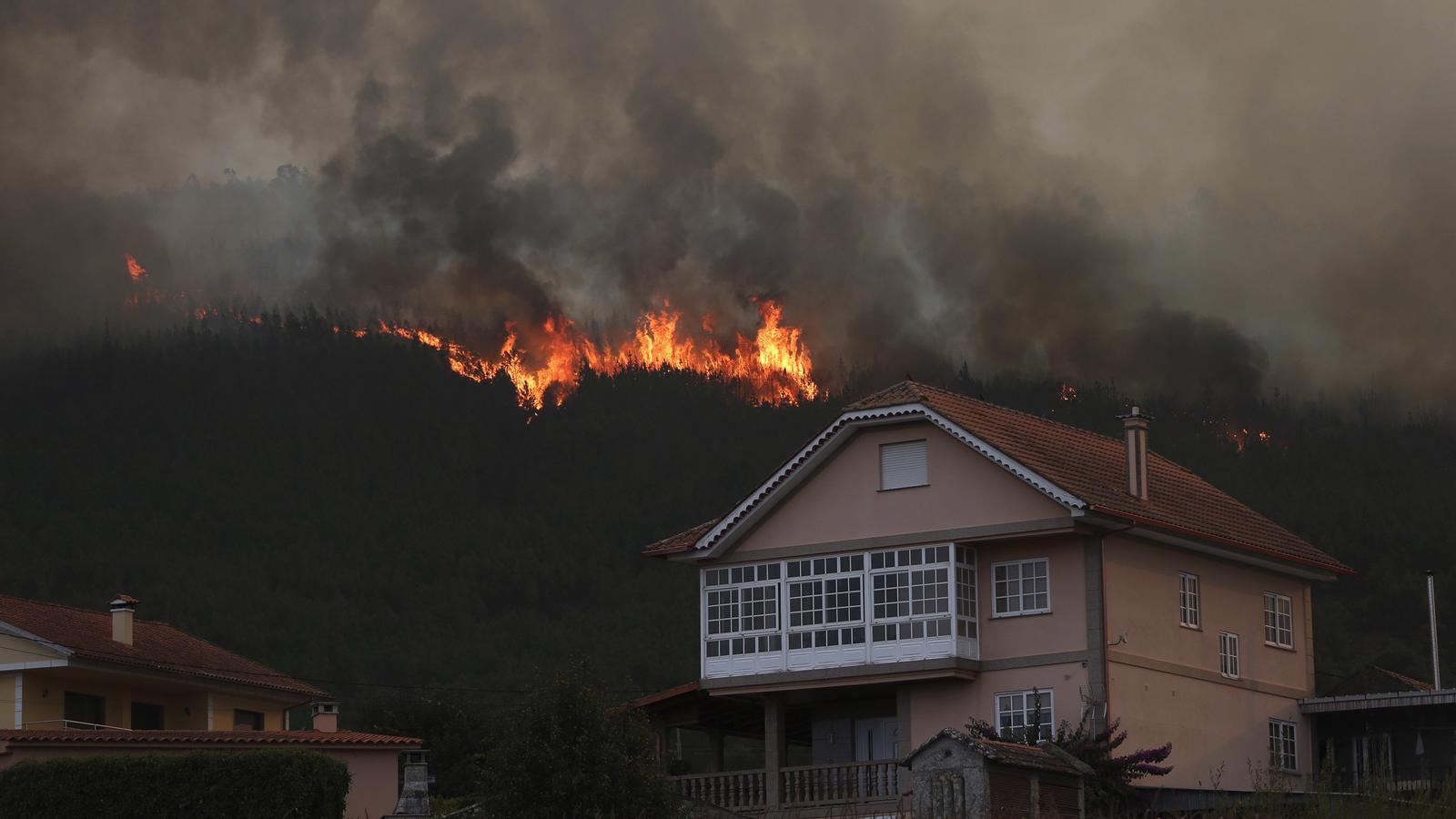A firefighter dies when the fire engine he was driving to the León fires overturns.
Sánchez mobilizes the army in the face of his inability to control the raging fires.


MadridFatal accident in the León fires. One firefighter died and another was injured when a fire engine overturned while they were participating in the efforts to extinguish the fires in the León municipality of Espinoso de Compludo, in the region of Ponferrada, in northwestern Spain. The firefighter who died was the driver of the fire engine, who fell down an embankment shortly before 10:30 p.m. Both firefighters were part of the operation working to extinguish the Yeres fire, one of the nearly 40 active fires burning in the area, the worst affected in Spain. With the death of the firefighter, the death toll from the fires ravaging Spain has reached four.
Yet another day, Spain has failed to control the fires that have been ravaging the regions of Galicia, Castilla y León, and Extremadura for days. They have also reached Asturias and Cantabria, where they threaten the Picos de Europa mountains, around which ten towns have been evacuated. Nearly forty fires remain out of control, fueled by a heat wave that reached its peak this Sunday. Faced with this critical situation, Spanish President Pedro Sánchez announced that 500 army personnel will join the Military Emergency Unit (UME) to fight the fires. "Today [Sunday], the UME has given its approval for another 500 army personnel to be deployed to the various fires across the country," Sánchez explained in a media address.
The President of the Spanish government has visited some of the affected areas for the first time. First, he did so in Ourense, alongside the President of the Xunta, Alfonso Rueda (PP), and the Minister of the Interior, Fernando Grande-Marlaska, and then moved to Villablino (Castilla y León).
In recent hours, the autonomous communities most affected by the wave of fires ravaging the state—all of them under PP governments—had asked the Spanish government to mobilize the army. A request that the PP leadership has also echoed. In a press conference this Sunday, the Galician president himself made the request again. Specifically, Galicia requested the incorporation of 200 soldiers. Sánchez indicated that with the activation of the 500 army members, he hopes to respond to the Galician request.
"There are still difficult days ahead," Sánchez warned. With the high temperature alert still in effect and a high and very high risk of fires, various communities faced very complicated days this Sunday in terms of firefighting efforts, and dozens of towns remain evacuated. The situation was especially complicated in Extremadura, where the blaze that started in Jarilla (Cáceres) is "out of control" and there are concerns it could spread to Castile and León. In the latter region, 27 active forest fires were reported this Sunday, 10 of which were in operational status 2, the maximum level of severity requiring state resources. The fire reached the Cantabrian part of the Picos de Europa, where requests were made to minimize activity. Pilgrims walking the Camino de Sant Jaume near affected areas have also been asked to leave.
Galicia, where fires have already destroyed 50,000 hectares, still has 12 active and uncontrolled blazes, all of them in the province of Ourense. "All state resources will be in the hands of the autonomous communities," Sánchez promised.
Call for cooperation
"In the face of a crisis like the one in Galicia, we must act jointly, in a united and cooperative manner," Sánchez argued. Rueda also did so: "Coordination on the ground must continue," affirmed the Galician president. The joint call by Sánchez and Rueda has signaled a truce amid the backlash between the Moncloa government and the PP over the response to the fires. While the Spanish government maintains that everything the affected communities have requested has been met (they have the authority to manage forest fires), Alberto Núñez Feijóo's party has pointed out that Sánchez has not been up to the task.
The most belligerent voice of the PP continues to be that of the president of the Community of Madrid, Isabel Díaz Ayuso, who has accused the PSOE and Sumar government of "looking for culprits" in the midst of the crisis and has criticized them for their "lack of humanity." In statements to the media this Sunday, Ayuso, in line with the speeches of Vox, has also pointed against the European Union for putting obstacles to prevention efforts.
Since June 1, when the national campaign against forest fires began, 27 people have been arrested for the fires and 92 people are under investigation, according to the latest data from the Ministry of the Interior collected by Europa Press.
State Pact in September
Faced with an unprecedented wildfire crisis, Sánchez has announced that the Spanish government will propose a "state pact for climate emergency mitigation and adaptation" that will involve public administrations, all political groups, civil society, science, business, and unions to ensure sufficient resources to provide the necessary assistance. The government intends to present it this September.
